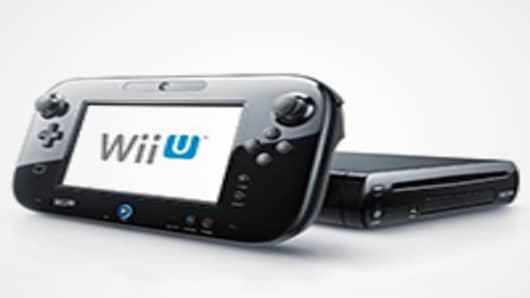Global smartphone shipments are expected to hit 1.7 billion in 2017, up from 450 million last year — that’s an annual growth of more than 20 percent, according to UK research firm Ovum.
So what’s the traditional video game industry doing about the rise of mobile devices?
Nintendo is embracing the tablet trend making the controller for its new Wii-U a touch-screen tablet, which looks a lot like an iPad. The Wii-U is designed to enable users to play with both screens, creating a 3-D gaming environment.
And the traditional video game makers — whose bread and butter is selling packaged software — are also shifting gears.
Electronic Arts offers several of its biggest video game brands, including Madden Football and Fifa Soccer, on smartphones, charging about $5 per game, plus the option of in-app purchases.
That’s nothing compared to the $60 these games cost at retail, but it allows EA to make its brands ubiquitous across various platforms. The gaming giant has said it wants people to be able to “snack” on mobile games during the day and then sit down for a proper “meal” at night.
Credit Suisse initiated coverage on the online video game industry, with an Oct. 10 report discussing the “proliferation of smartphones and tablets as an alternative content outlet for video game publishers as well as the movement of consumer dollars away from the console market and consumer packaged goods.”
With software consumption becoming "less tethered to dedicated console hardware,” as the CS report put it, it's likely that console-style hardware will further accelerate hard-core gamers shift to the mobile platform.
The big question: whether mobile gaming can feed into the traditional gaming business, or whether it cannibalizes it, pushing EA and its rival game-makers to re-adjust to mobile’s lower margins.
--by Julia Boorstin



